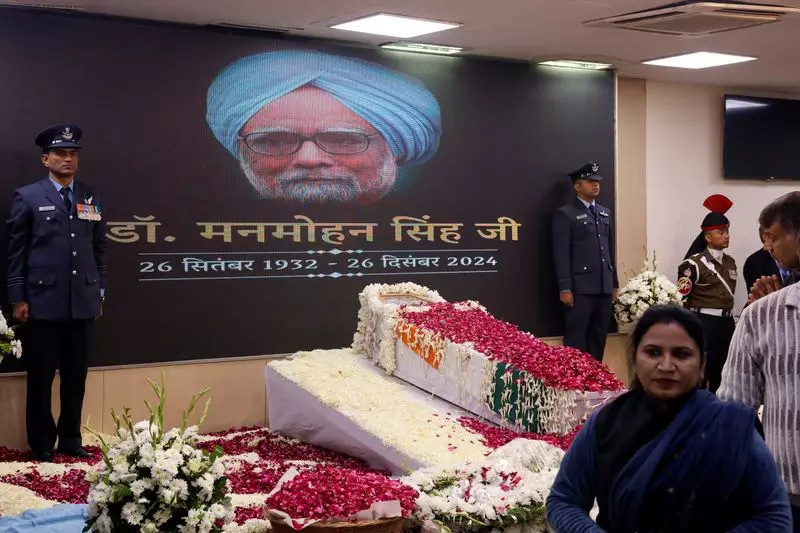The recent passing of Manmohan Singh, former Prime Minister of India, on Thursday at the age of 92, has not only drawn sorrow from his compatriots but has also garnered recognition from leaders around the globe. His funeral was marked with poignant tributes reflecting the profound impact he had on India and the broader international community. On Sunday, his body was laid to rest near the Yamuna River, where a ceremony rich in Sikh traditions took place, underscoring the cultural heritage Singh held dear. Draped in the Indian flag and adorned with floral arrangements, Singh’s final journey through Delhi epitomized a deep respect for his contributions to the nation.
Lamentations and Historical Reflection
Manmohan Singh’s tenure as Prime Minister was characterized by significant economic reforms and a transition towards liberalization that many credit for India’s rapid growth trajectory in the early 21st century. Nevertheless, his legacy is a complex one, often overshadowed by perceptions of ineffective leadership amid rampant corruption scandals during his administration. His assertion that “history will be kinder to me than the contemporary media” resonates deeply as a reminder of the disconnect between public perception and actual achievements. As people start to reflect on his leadership style and contributions, there is a renewed debate on how history will eventually interpret his time in office.
In a tribute to Singh’s enduring influence, current Prime Minister Narendra Modi described him as one of India’s “most distinguished leaders.” At the funeral, notable figures such as President Droupadi Murmu and ambassadors from various nations came to honor Singh’s life. The Modi government has also announced plans to allocate land for a memorial, a move that signifies the respect Singh earned, despite their political differences. His critiques of some of Modi’s policies, most notably the controversial demonetization and the rollout of a goods and services tax, highlight the nuanced nature of political legacies and the challenges faced by leaders.
A Family Ties and Mourning Together
Survived by his beloved wife and three daughters, Singh’s family was central to the outpouring of tributes during the funeral rites. Rahul Gandhi, a key figure in the Indian National Congress and Singh’s political heir, accompanied the family during the procession, symbolizing the unity among party leaders while honoring Singh. This moment also served as a reminder that, beyond politics, Singh’s life was deeply intertwined with his family, fostering a sense of community as they navigated their collective grief.
Singh’s death has triggered expressions of sympathy from global leaders, including those from the U.S., Canada, France, and more, emphasizing his role in shaping India’s international stance. This external recognition paints Singh not just as a national figure but as a global statesman whose policies and outlook left a mark far beyond India’s borders. The discussions around his international contributions are a testament to the respect he commanded on the world stage, further cementing his legacy as a forward-thinking leader during a transformative era for India.
As the nation comes to terms with the loss of Manmohan Singh, it becomes essential to engage in informed discourse about his lasting impact—one that transcends the immediate political narratives and seeks to understand the broader implications of his policies and leadership.

